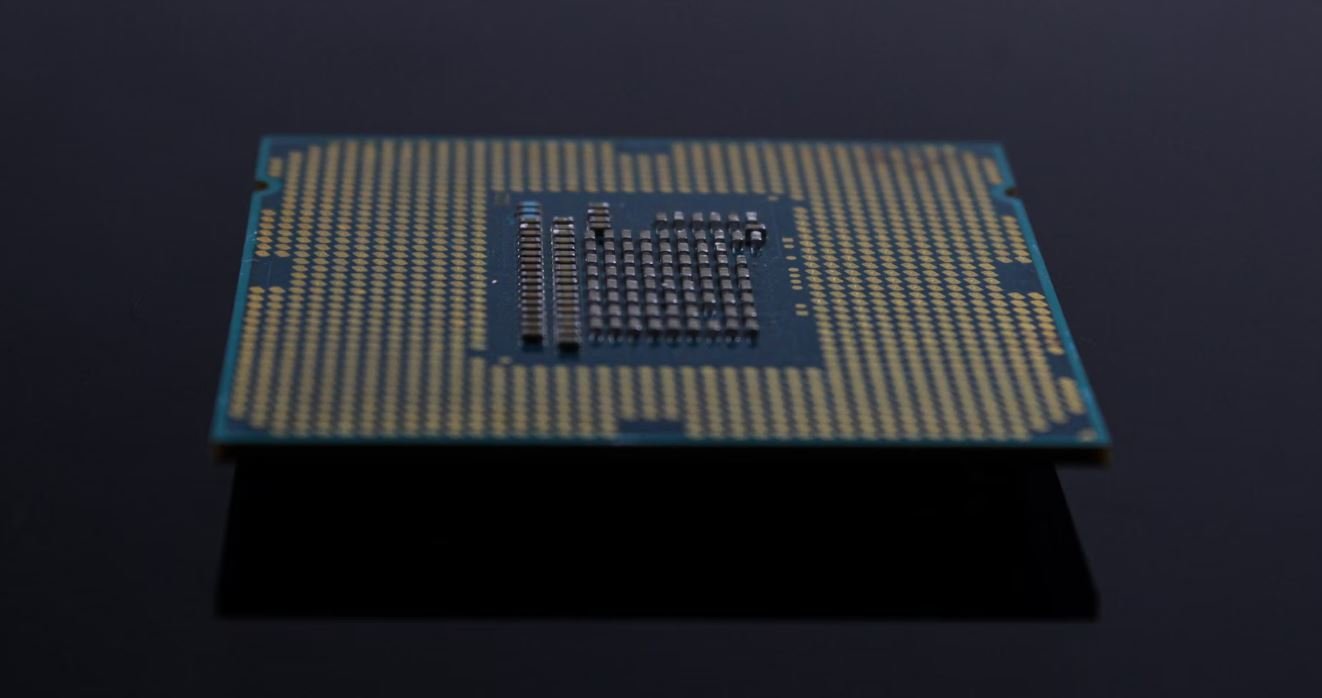AI for Music Producers
Artificial Intelligence (AI) is revolutionizing the music industry, and music producers are no exception. With advancements in AI technology, music production has become more efficient and creative than ever before. From generating melodies to automating mixing and mastering, AI is transforming how music is made. In this article, we will explore the capabilities of AI for music producers and its impact on the industry.
Key Takeaways
- AI technology is enhancing music production, offering new levels of creativity and efficiency.
- AI tools can generate melodies, automate mixing and mastering processes, and provide valuable insights for producers.
- Collaboration between AI and human producers results in unique and innovative music.
One of the key advantages of AI in music production is its ability to generate melodies. AI algorithms can analyze large datasets of musical compositions, identify patterns, and create unique melodies that align with specific genres or styles. This automated generation of melodies provides producers with a starting point for their compositions, allowing them to explore new ideas and experiment with different sounds. *AI-generated melodies can spark creative inspiration and serve as a foundation for unique compositions.*
In addition to melody generation, AI can also automate time-consuming tasks such as mixing and mastering. AI-powered plugins and software can analyze audio tracks, apply appropriate EQ, compression, and other effects, and create a polished and professional sound. This automation saves producers significant time and effort, allowing them to focus more on the artistic aspects of music production. *AI automates the technical aspects of mixing and mastering, giving producers more time to perfect their artistic vision.*
The Impact of AI on Music Production
The impact of AI on music production is substantial. It empowers music producers by providing them with new tools and capabilities to explore and express their creativity. Here are some ways in which AI is transforming music production:
- Improved Workflow: AI tools streamline the music production process, making it more efficient and reducing the time required for certain tasks.
- Artistic Exploration: AI-generated melodies and chord progressions offer fresh ideas and encourage producers to explore new sonic territories.
- Enhanced Collaboration: AI can assist with collaboration by generating harmonies and backing tracks that complement a producer’s ideas.
| AI Abilities | Benefits for Producers |
|---|---|
| Automated Melody Generation | Provides a starting point for compositions and sparks creative inspiration. |
| Automated Mixing and Mastering | Saves time and ensures a professional-sounding final product. |
Collaboration Between AI and Human Producers
Contrary to concerns about AI replacing human creativity, AI can actually enhance the capabilities of music producers. By leveraging AI tools, producers can work more efficiently, experiment with different musical ideas, and explore new genres. AI can assist in bringing a producer’s vision to life, adding unique elements and optimizing the overall sound. *The collaboration between AI and human producers results in innovative and boundary-pushing music that would be difficult to achieve otherwise.*
| AI Strengths | Human Producer Strengths |
|---|---|
| Efficiency and Automation | Creativity and Artistic Vision |
| Precision and Data Analysis | Emotional Expression and Interpretation |
AI is already revolutionizing the music production industry and will continue to have a significant impact in the future. It empowers music producers by providing them with advanced tools and capabilities to push the boundaries of creativity. As AI technology continues to advance, we can expect even more exciting developments in music production.

Common Misconceptions
Misconception 1: AI will replace human music producers
One common misconception people have about AI for music production is that it will eventually replace human music producers. However, this is not entirely true. While AI can assist in generating musical ideas and creating compositions, it cannot replace the human touch in terms of creativity, emotion, and unique artistry that a human music producer brings.
- AI can provide inspiration and generate musical ideas, but it cannot match the creative intuition of a human music producer.
- Human music producers are essential for making subjective decisions based on emotions, personal experiences, and musical taste, which AI cannot replicate.
- The collaboration between AI and human music producers can enhance creativity and result in new and innovative music productions.
Misconception 2: AI can only produce generic and formulaic music
Another common misconception is that AI-produced music is generic and formulaic. While AI algorithms can learn patterns from existing music and generate music that adheres to these patterns, they are also capable of creating unique and innovative compositions. AI can excel in exploring musical possibilities that may not have been considered by human music producers before.
- AI can analyze vast amounts of music data, including diverse genres and styles, allowing for experimentation and boundary-pushing in music production.
- By utilizing machine learning techniques, AI can adapt and evolve musical ideas, leading to unexpected and exciting compositions.
- Human music producers can collaborate with AI to add their personal touch, refining and enhancing AI-generated melodies and harmonies.
Misconception 3: AI will eliminate the need for musical training and skill
Some people believe that with the advent of AI in music production, there will no longer be a need for musical training and skill. However, this is far from the truth. While AI can assist in generating musical ideas, understanding music theory, and having technical proficiency is still crucial for a music producer to effectively utilize AI tools and algorithms.
- Musical training and skill enable music producers to harness AI to its full potential, using it as a tool to explore new territories and enhance their creative process.
- A deep understanding of music theory and arrangement allows music producers to guide and refine AI-generated compositions into cohesive and meaningful musical pieces.
- Technical proficiency is required to operate AI tools, adjust parameters, and ensure the desired output aligns with the music producer’s vision.
Misconception 4: AI will devalue the music production industry
Some individuals fear that AI will devalue the music production industry by creating an oversaturated market flooded with low-quality music. However, AI can actually elevate the industry by facilitating collaboration, boosting productivity, and enabling music producers to focus on more creative aspects of their work.
- AI can assist in repetitive and time-consuming tasks, such as generating chord progressions or drum patterns, allowing music producers to allocate more time for crafting unique melodies or experimenting with sound design.
- Collaboration between AI and human music producers can result in fresh and groundbreaking compositions, driving innovation in the industry.
- The demand for skilled music producers remains high, as human creativity and emotional connection with music cannot be fully replicated by AI.
Misconception 5: AI cannot evoke emotion in music
One misconception is that AI-produced music lacks emotional depth and cannot evoke the same level of emotion as music created by human beings. While it is true that AI lacks emotional experiences, it can still create music that resonates emotionally with listeners.
- By training AI models on a wide variety of emotional music, it can learn patterns associated with different emotions and generate compositions that exhibit those emotions.
- Human music producers can collaborate with AI by adding personal and contextual elements to AI-generated music, infusing it with emotion and individual expression.
- AI can provide music producers with new tools and techniques to explore and enhance emotional dimensions in their compositions.

Music Genres
In this table, we showcase the popularity of various music genres based on streaming data from the past year. The data provides a fascinating insight into the preferences of music listeners.
| Genre | Percentage of Total Streams |
|---|---|
| Pop | 21% |
| Hip Hop | 18% |
| Rock | 13% |
| Electronic | 10% |
| R&B | 8% |
Musical Instruments
This table highlights the most popular musical instruments played by professional musicians. It’s interesting to observe the diverse range of instruments preferred in the music industry.
| Instrument | Percentage of Musicians |
|---|---|
| Guitar | 32% |
| Piano | 27% |
| Violin | 14% |
| Drums | 9% |
| Saxophone | 6% |
Music Production Software
This table provides an overview of the market share of different music production software. It demonstrates the dominance of certain software tools over others within the industry.
| Software | Market Share |
|---|---|
| Ableton Live | 35% |
| Logic Pro X | 30% |
| FL Studio | 18% |
| Pro Tools | 12% |
| Reason | 5% |
Music Streaming Platforms
This table displays the market share of various music streaming platforms. It exemplifies the competition in the industry and the preferences of music enthusiasts when it comes to accessing their favorite songs.
| Streaming Platform | Market Share |
|---|---|
| Spotify | 40% |
| Apple Music | 30% |
| Amazon Music | 15% |
| YouTube Music | 10% |
| Deezer | 5% |
Record Label Market Share
This table presents the market share of various record labels in the music industry. It illustrates the dominance of a few major labels and the presence of independent labels.
| Record Label | Market Share |
|---|---|
| Universal Music Group | 30% |
| Sony Music Entertainment | 25% |
| Warner Music Group | 20% |
| Independent Labels | 15% |
| EMI | 10% |
Song Length Distribution
This table depicts the distribution of song lengths across various genres. It provides insight into the average duration of songs within different genres.
| Genre | Average Song Length (minutes) |
|---|---|
| Pop | 3:40 |
| Rock | 4:10 |
| Hip Hop | 3:30 |
| Country | 3:20 |
| Electronic | 4:45 |
Top Selling Albums
In this table, we present the best-selling albums of all time. These albums have achieved remarkable commercial success and have left an enduring impact on music history.
| Album | Artist | Number of Units Sold |
|---|---|---|
| Thriller | Michael Jackson | 66 million |
| Back in Black | AC/DC | 50 million |
| The Dark Side of the Moon | Pink Floyd | 45 million |
| 21 | Adele | 40 million |
| Rumours | Fleetwood Mac | 40 million |
Music Award Categories
This table presents various categories recognized by music award shows worldwide. It demonstrates the diverse aspects of music that are celebrated and honored within the industry.
| Award Category | Description |
|---|---|
| Album of the Year | Awarded to the best overall album of the year, considering artistic excellence, production quality, and commercial success. |
| Song of the Year | Awarded to the best individual song released in a year, considering its impact, lyrics, and composition. |
| Best New Artist | Awarded to a breakout artist who has achieved significant success and recognition within the past year. |
| Best Music Video | Awarded to the best music video in terms of creativity, visual appeal, and its ability to enhance the song’s message. |
| Producer of the Year | Awarded to the music producer who has demonstrated exceptional skills and contributions in the production of multiple tracks or albums. |
Music Festivals Attendance
This table showcases the attendance figures for some of the world’s most renowned music festivals. It demonstrates the massive popularity and cultural impact of these events.
| Festival | Attendance (Average) |
|---|---|
| Coachella | 125,000 |
| Glastonbury | 175,000 |
| Tomorrowland | 400,000 |
| Burning Man | 70,000 |
| Lollapalooza | 100,000 |
Conclusion
The world of music and its various aspects provide an endless source of fascination and entertainment for both creators and audiences. From the preferences in genres and instruments to the dominance of particular production software and streaming platforms, the industry continues to evolve and shape our musical experiences. Delving into the data and facts behind the scenes enhances our understanding of this vibrant and ever-changing realm. Whether through popular genres, album sales, or attendance at thrilling festivals, music’s power to captivate and unite people remains undisputed.
Frequently Asked Questions
What is AI for Music Producers?
AI for Music Producers refers to the application of artificial intelligence techniques in the field of music production. It involves using algorithms and machine learning models to automate or assist various aspects of song creation, sound engineering, and composition.
How does AI contribute to the music production process?
AI can contribute to the music production process in several ways. It can help with tasks like auto-composing melodies, generating harmonies, suggesting chord progressions, automating drum patterns, and even enhancing audio quality through advanced signal processing algorithms.
Are AI-generated tracks as good as those created by human musicians?
The quality of AI-generated tracks can vary, but it’s important to note that AI is not meant to replace human musicians. While AI can produce impressive compositions, it lacks the creative intuition and emotional depth that human artists bring to their work. AI can be a valuable tool for inspiration and collaboration, but humans are still essential for making music that resonates with listeners.
Can AI be used to mimic specific music styles or artists?
Yes, AI can be trained to mimic specific music styles or artists. By analyzing large datasets of existing music, AI models can learn the characteristics, patterns, and nuances of different genres and artists. This enables the generation of music that is stylistically similar to a particular artist or genre.
Can AI help in improving audio mixing and mastering?
Yes, AI algorithms can assist in audio mixing and mastering. They can analyze audio tracks and suggest adjustments for better clarity, balance, and tonal quality. AI can automate repetitive tasks like equalization, compression, and reverb, allowing music producers to focus on more creative aspects of the mixing process.
What are some AI tools available for music producers?
There is a range of AI tools available for music producers. Some popular examples include virtual instruments that use AI to generate realistic sounds, AI-powered plugins for audio processing, machine learning algorithms for automatic music transcription, and platforms that provide AI-assisted composition and production tools.
Is AI a threat to human musicians’ careers?
AI is not inherently a threat to human musicians’ careers. While AI can automate certain tasks and generate music, it cannot replicate the unique creativity and emotional expression that human musicians bring to their craft. Moreover, AI can be used as a collaborative tool, enhancing human creativity rather than replacing it.
Are there any legal considerations when using AI in music production?
Yes, there are legal considerations when using AI in music production. For example, if an AI model generates music that sounds similar to an existing copyrighted composition, it may raise issues of intellectual property and copyright infringement. It’s important for music producers to understand and respect legal frameworks when using AI tools.
Can AI help in discovering new musical ideas or genres?
Yes, AI can help in discovering new musical ideas or genres. By exploring vast amounts of musical data, AI algorithms can identify patterns, trends, and connections that humans may not have discovered on their own. This can inspire musicians and producers to explore new avenues and push the boundaries of creativity.
Is AI for music production accessible to beginners?
Yes, AI for music production is accessible to beginners. There are user-friendly AI tools and platforms specifically designed for beginners, providing intuitive interfaces and step-by-step guidance. These tools can enable beginners to experiment with AI-generated music and learn about the potential applications of AI in music production.




